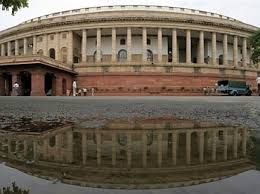 The Narendra Modi government has set up a mechanism to monitor prices of key essential commodities to ensure there is no unusual flaring in the ongoing festival season.
The Narendra Modi government has set up a mechanism to monitor prices of key essential commodities to ensure there is no unusual flaring in the ongoing festival season.
Officials said the exercise started sometime ago with the department of consumer affairs along with food and agriculture forming a select group to monitor prices.
The Prime Minister’s Office is being sent daily updates on the food price situation in four major metropolitan cities.
The commodities being monitored are wheat, rice, edible oils and sugar.
In edible oils, prices of mustard, groundnut and palm oil are of particular importance because they are widely consumed during the festival season.
Four to five senior officials from the department of consumer affairs have toured various parts of the country to cross-check the price data furnished by state governments.
For instance, there was huge fluctuation in the retail sugar price data in Raipur some time ago.
“There was something suspicious about the price movement as Chhattisgarh is neither a major consumer nor a big producer of sugar cane or sugar.
"Hence, we sent some officers to verify the data,” a senior official from the department of consumer affairs said. The data was found inaccurate and corrected later, he said.
The exercise will continue in the coming days as well to ensure there is no speculation and a correct picture on prices emerges, the official said.
The whole mechanism is having a bearing on prices.
Retail prices of various commodities monitored either declined or showed a moderate increase between September 1 and October 1.
The average price at the national level was down Rs 5 .5 a kg in the common variety of rice to Rs 26.5 as on October 1 from Rs 32 on September 1,
Similarly, groundnut oil prices fell by Rs 31 to Rs 114 a litre from Rs 145 and palm oil by Rs 2 to Rs 65 a litre from Rs 67.
However, prices of sugar were up by Rs 3 to Rs 37 a kg from Rs 34 a kg and mustard by Rs 1.67 a litre to Rs 91.67 from Rs 90.
Wheat prices remained at Rs 18 a kg over this period.
Food prices had shown a rising trend immediately after the new government, the official added by Narendra Modi, took charge. Prices of onions, potatoes and tomatoes surged.
On its part, the government took a series of measures, including prohibiting export of onions and potatoes beyond a particular value and allowing state governments to impose stock-holding limits on onions and potatoes by bringing these under the Essential Commodities Act.
Retail prices of onions did not rise much between September 1 and October 1.
These rose by Rs 2.5 a kg to Rs 27.5 a kg as on October 1.
Prices of potatoes remained unchanged but at an elevated level of Rs 30 a kg.
Tomatoes remained expensive, rising by Rs 5 at Rs 45 as on October 1 from Rs 40 as on September 1.
Retail price index-based food inflation has consistently remained high since the new government came to the office.
It was 9.56 per cent in May, came down to 8.05 per cent the next month. But it again rose to 9.36 per cent in July and then further to 9.42 per cent in August.
However, wholesale food price index-based inflation tells a different story. Food inflation in terms of WPI stood at 9.64 per cent in May, towards the end of which the new government took charge.
Since then, it has declined to 5.15 per cent in August.











